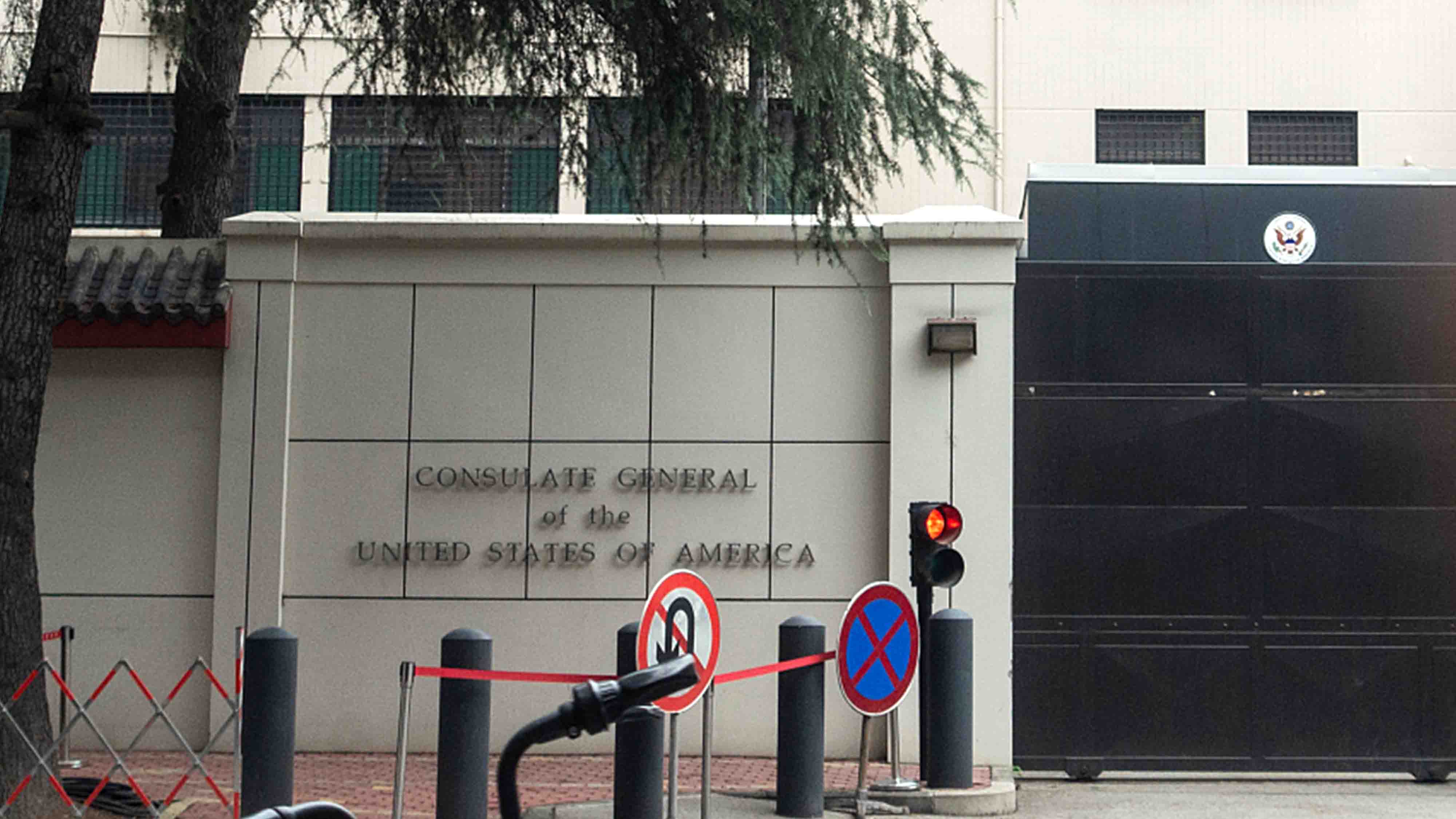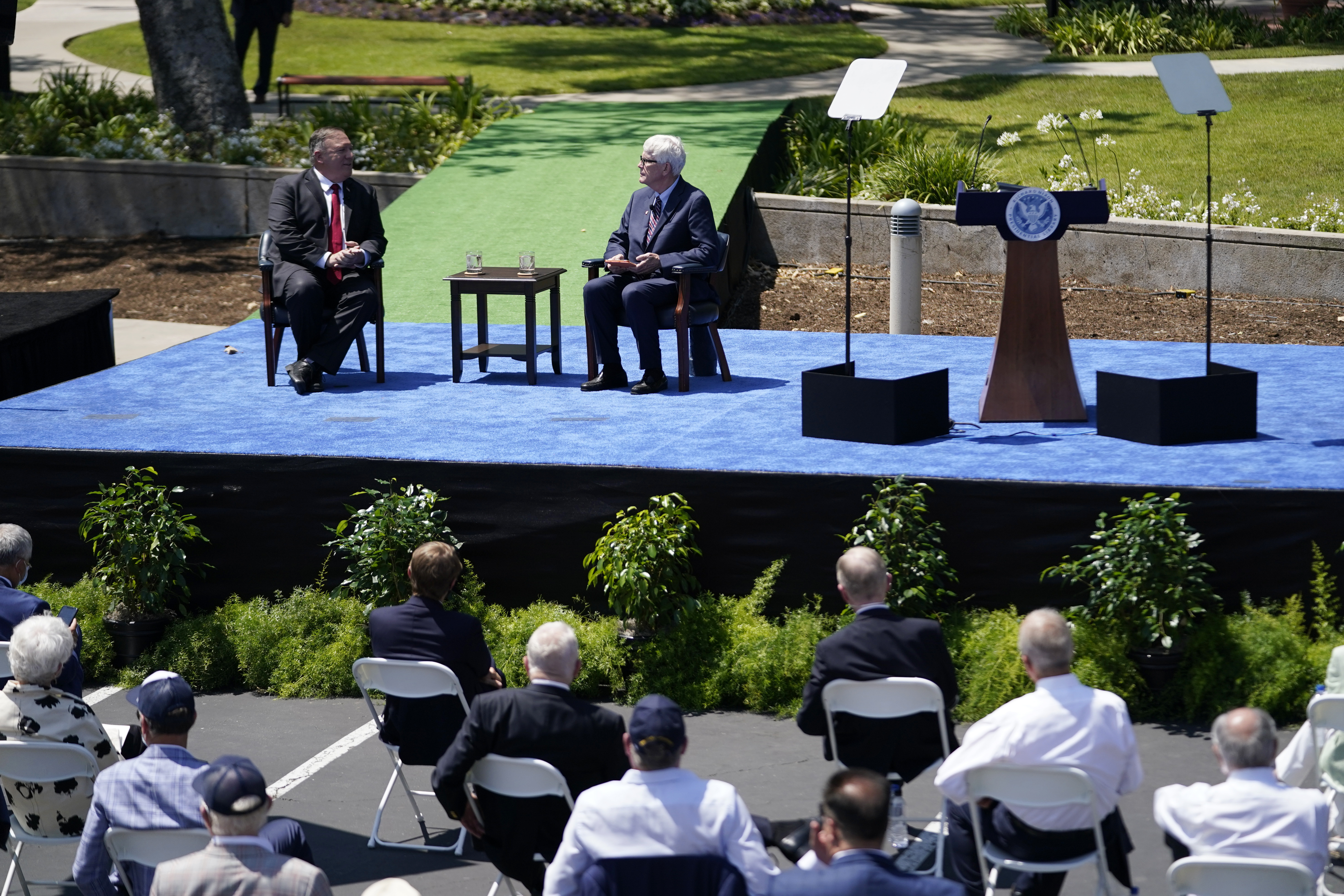
Editor's note: Iram Khan is a Pakistan-based commentator on international affairs. The article reflects the author's opinions, and not necessarily the views of CGTN.
The closure of the Chinese consulate in Houston was not an isolated move by the U.S. It was part of a series of steps meant to keep the country relevant, as the global center of gravity is shifting towards the East. The former superpower, with its domestic politics in a mess, is becoming increasingly isolated with a diminishing say in international affairs and plummeting credibility.
China responded in kind – by withdrawing its consent to the operation of the U.S. consulate in Chengdu – but not impulsively. It was, rather, a calculated countermeasure taken after thorough deliberations whose effects will be felt by the U.S. government in the coming months.
The U.S. has been delivered a message that every ill-advised action will have a well-thought-out and determined reaction. Instead of an immediate tit-for-tat response, it will face consequences that will uncover the hypocrisy of its policies.
While American policymakers remain consumed with ways to retain the primacy of their government's interests, they are lagging in their understanding of a world that has moved on to multi-polarity. Not only are they following strategies that are counterproductive for the growth of their perceived rivals but even their nation's allies are getting uncomfortable while working with a trigger-friendly Uncle Sam with a live gun in his hand.
Modern hyper-connectivity requires an understanding of other countries' concerns, interests and sensitivities since the demand for coexistence has exponentially increased. The U.S., under President Donald Trump, has impinged on all norms of cooperation by adopting an America First doctrine. Resultantly, its transatlantic friends are facing the other way and its partners in Asia are questioning the viability of relying on a receding power that is looking more and more inward.

U.S. Secretary of State Mike Pompeo (L) answers questions from Hugh Hewitt, president and CEO of the Nixon Foundation, after Pompeo spoke at the Richard Nixon Presidential Library, in Yorba Linda, California, July 23, 2020. /AP
U.S. Secretary of State Mike Pompeo (L) answers questions from Hugh Hewitt, president and CEO of the Nixon Foundation, after Pompeo spoke at the Richard Nixon Presidential Library, in Yorba Linda, California, July 23, 2020. /AP
This has brought the U.S. into disrepute earned as a result of its leader's irrational, inconsistent and incoherent rhetoric that has left even the closest of its allies confused. For the past four years, America's partners have been unable to make long-term bilateral plans, as they are completely unsure of what Trump will have to say about them in his outrageous morning tweets when he views a deal negatively.
And now as the presidential election nears, things have taken a turn for the worst. Trump's furor aimed at his political rivals has gone on to target China. His Republican party, unable to defend his meaningless conspiracy theories, has decided to make China the bogeyman, as revealed by a leaked internal memo.
Be it trade restrictions, media curbs, placing blame for COVID-19 control incompetency or introducing bills that interfere in China's internal matters, the Republicans are ratcheting up a case for U.S. voters to think about China – rather than Trump's failures – when they go to polling booths in November.
The hype against China has been built up to a level that if Joe Biden wins the election, it will take a considerable time to tone down the demagogy, if he so chooses. The constant bombardment from U.S. media outlets and political pundits that China is the reason for all problems of America is reversing decades of diplomatic efforts by seasoned politicians who had the vision to collaborate with China rather than treat it as an adversary.
Then there are the presidential aspirations of the incumbent Secretary of State Mike Pompeo, who is using the diplomatic corps for partisan gain. Just as his leader tried to exploit military assistance to Ukraine in digging up dirt on Joe Biden, Pompeo appears to be charting his own path to the Oval Office at the expense of taxpayers' money and at the expense of the relations with the world's second-largest economy. In sum, the domestic political mess of the U.S. is spilling out of its borders and afflicting the international diplomatic order.
China's response to close the U.S. mission in Chengdu conveys that the country and its leadership are resolute in upholding national interests. The U.S. has been using dirty tactics to pursue an antagonistic agenda, bowing to which has eroded the sovereignty of both its rivals and friends. Unlike this approach, China has asserted that it is not a nation that leaves attempts at repression unchecked.
The new low in the diplomatic row is not something that China desired, as stated by its Foreign Ministry spokesperson. What it wants instead is a relationship based on "non-conflict, non-confrontation, mutual respect and win-win cooperation." But if the U.S. will try to intimidate this centuries-old civilization, it should be ready to man up to the fallout.
(If you want to contribute and have specific expertise, please contact us at opinions@cgtn.com.)